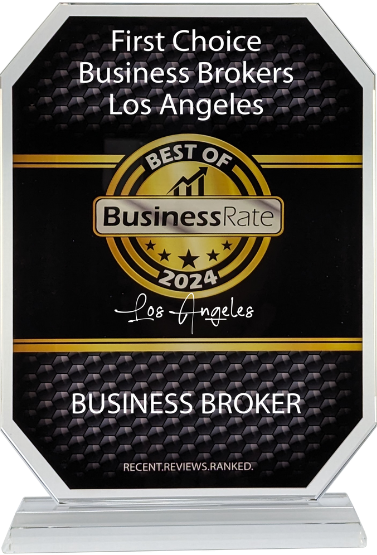How do you sell your business?
Selling a business is a significant decision that involves multiple steps and careful planning. Whether you're motivated by personal reasons, market conditions, or the business's performance, it's essential to prepare adequately to ensure a smooth and profitable sale. This article will guide you through the entire process, from identifying your reasons for selling to post-sale considerations.
Key Takeaways
- Identify why you want to sell your business and make sure it's ready to be sold.
- Take the time you need to prepare your business for sale, determine its value, and consider hiring a business appraiser.
- Decide whether you want to hire a broker or negotiate the deal yourself.
- Once you find a good buyer, you need to take a series of financial screenings and other steps to keep the process moving.
- Understanding the best way to sell your business depends on various factors, including the size and type of business, the current marketplace, and your finances.
Identifying Your Reasons for Selling
Personal Motivations
Clarifying your reasons for selling your business is crucial. Personal motivations often play a significant role. You might be experiencing burnout, facing family issues, or simply finding that the business is no longer a good fit for you. Other common reasons include retirement, partnership disputes, illness, or boredom. Being honest about your motivations is essential, as potential buyers will critically evaluate why it's for sale.
Taking the time to reflect on your reasons can help you make a more informed decision and prepare you for discussions with potential buyers.
Market Conditions
Market conditions can significantly influence your decision to sell. If the market is favorable, you might get a better price for your business. Conversely, if the market is down, it might be challenging to attract buyers. Consider the current economic climate, industry trends, and the competitive landscape.
Understanding these factors can help determine the right time to sell and maximize your returns.
Business Performance
Another critical factor is your business's performance. If your business is thriving, it will be more attractive to buyers. However, if it's struggling, you might need to improve before putting it on the market. Potential buyers will look at your financial records, customer base, and overall business health. Ensuring your business is in good shape can make the selling process smoother and more profitable.
Preparing Your Business for Sale
Financial Documentation
The first step in selling your business quickly is preparing. First, make sure all of your documents are in order. This includes your accounting records, articles of incorporation, any licenses or permits you need, and other tax records. Having everything in order will make the sale process much smoother and help ensure the buyer can hit the ground running
.
Operational Improvements
Timing is everything. And that includes the time it takes to get everything ready to sell off your business. Prepare for the sale as early as possible, preferably a year or two ahead of time. The preparation will help you to improve your financial records, business structure, and customer base to make the business more profitable.
Legal Considerations
Gather your financial statements and tax returns dating back three to four years and review them with an accountant. In addition, develop a list of equipment being sold with the business. Create a list of contacts related to sales transactions and supplies, and dig up any relevant paperwork, such as your current lease. Make copies of these documents to distribute to financially qualified potential buyers.
Do the prep work: Before you begin selling your business, consider the following issues: Identify why you want to sell your business and make sure it's ready to be sold. Take the time you need to prepare your business for sale, determine its value, and consider hiring a business appraiser. Decide whether you want to hire a broker or negotiate the deal yourself. Once you find a good buyer, a series of financial screenings and other steps need to be taken to keep the process moving.
Valuing Your Business
Hiring a Business Appraiser
Determine your business's value to ensure you don't price it too high or too low. You can do this by finding and hiring a business appraiser to get a valuation. Once you hire an appraiser, they will draw up a detailed explanation of the business's worth. The document will bring credibility to the asking price and can serve as a gauge for your listing price.
Understanding Market Value
You might think you know your business's value —you may even think it’s priceless. However, there is a true fair market value for your company, and you’ll need a professional to help determine it. Getting an expert to examine your business’s financial stability, historical sales and expenses, and anticipated performance over time can help you maximize your valuation without overpricing your business and scaring off potential buyers.
Adjusting for Intangible Assets
There are a few different methods you can use to value your business. One common approach is simply looking at your company's assets and liabilities. This will give you a concrete understanding of what your business is worth, but it doesn't consider intellectual property. Another approach is to look at comparable companies in your industry. This can give you a good idea of what potential buyers might be willing to pay for your business.
Additionally, understanding what your business is worth and how others calculate that value is a great way to increase its value.
Finding the Right Buyer
Using a Business Broker
A business broker can be an invaluable asset when selling your business. They have the expertise and network to connect you with potential buyers who are serious and pre-qualified. Using a broker can save you time and help you get the best deal possible. Make sure to choose a broker with a good track record and experience in your industry.
Marketing Your Business
Marketing your business effectively is crucial to attracting the right buyers. Develop a comprehensive marketing plan that includes online listings, social media, and industry publications. Don't limit your advertising; the broader your reach, the more potential buyers you'll attract.
A well-executed marketing strategy can significantly increase your chances of finding the right buyer.
Screening Potential Buyers
Screening potential buyers is essential to ensure they are serious and capable of following through with the deal. Ask important questions immediately to determine if they have the necessary financing and experience. Here are some key points to consider:
- Does the buyer have the cash to buy or need funding?
- Have they purchased companies before?
- Who would need to approve the deal on the buyer’s end (internally: founders, board members, management; externally: investors, banks)?
- Will they keep your team employed after the sale?
By asking these questions, you can identify who should be your buyer and avoid wasting time on those who are not a good fit.
Negotiating and Closing the Deal
Financial Screenings
Before finalizing any deal, conducting thorough financial screenings of potential buyers is crucial. This ensures the buyer has the necessary funds and financial stability to complete the purchase. Key steps include:
- Verifying the buyer's financing
- Reviewing financial statements
- Ensuring business license transfer authorization
Drafting the Sales Agreement
Drafting a comprehensive sales agreement is essential to avoid any misunderstandings or disputes later on. The agreement should cover all terms of the sale, including the sale price, assets included, and any training or support you will provide. Put any agreements in writing to protect both parties.
Handling Legalities
Finalizing legal contracts is often the most complex part of the process. You must coordinate with lawyers, accountants, and other advisors to ensure all legal aspects are covered. This includes:
- Reviewing and signing an array of documents
- Ensuring confidentiality agreements are in place
- Addressing any conditions of sale
Transactional Guidance is crucial during this phase to navigate the complexities and avoid the deal falling through at the last minute.
Post-Sale Considerations
Transitioning Ownership
Transitioning ownership smoothly is crucial for maintaining business continuity. This involves ensuring that all legal formalities are completed and the new owner is well-prepared to take over operations. Key documents to review and sign include the purchase and sale, escrow, and employment agreements.
Tax Implications
Understanding the tax implications of selling your business is essential. You may need to consult with a tax advisor to navigate capital gains taxes and other potential liabilities. Proper planning can help you handle the profit from the sale more efficiently.
Future Involvement
Decide on your future involvement with the business. Some sellers stay on as consultants to help with the transition, while others prefer a clean break. Consider what level of involvement will benefit you and the new owner most.
Finalizing the sale: after the highest bid is accepted, the sale is finalized. This includes completing legal formalities, handling financial transactions, and ensuring a smooth transition for the new owner.
Market conditions and your circumstances. Following the outlined steps and seeking the right advice can ensure a smooth and profitable transition.






